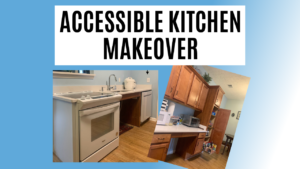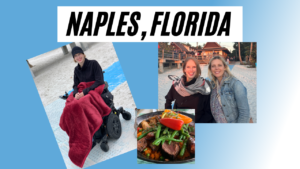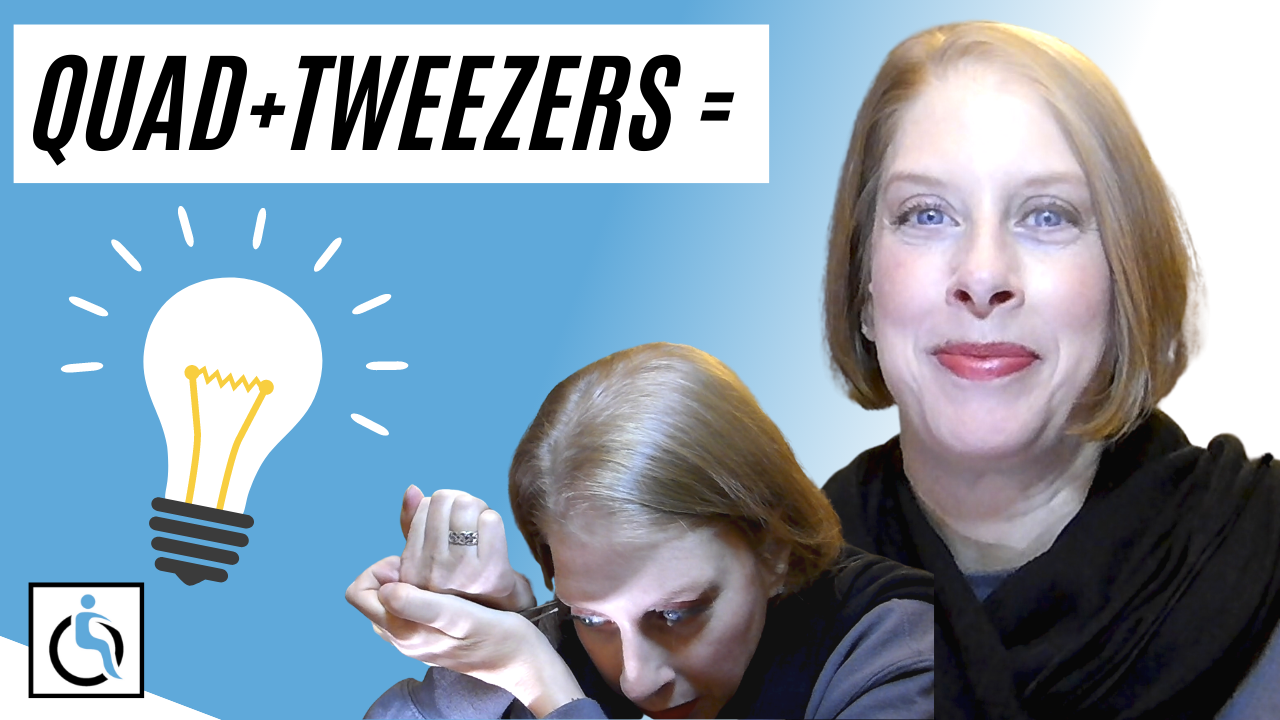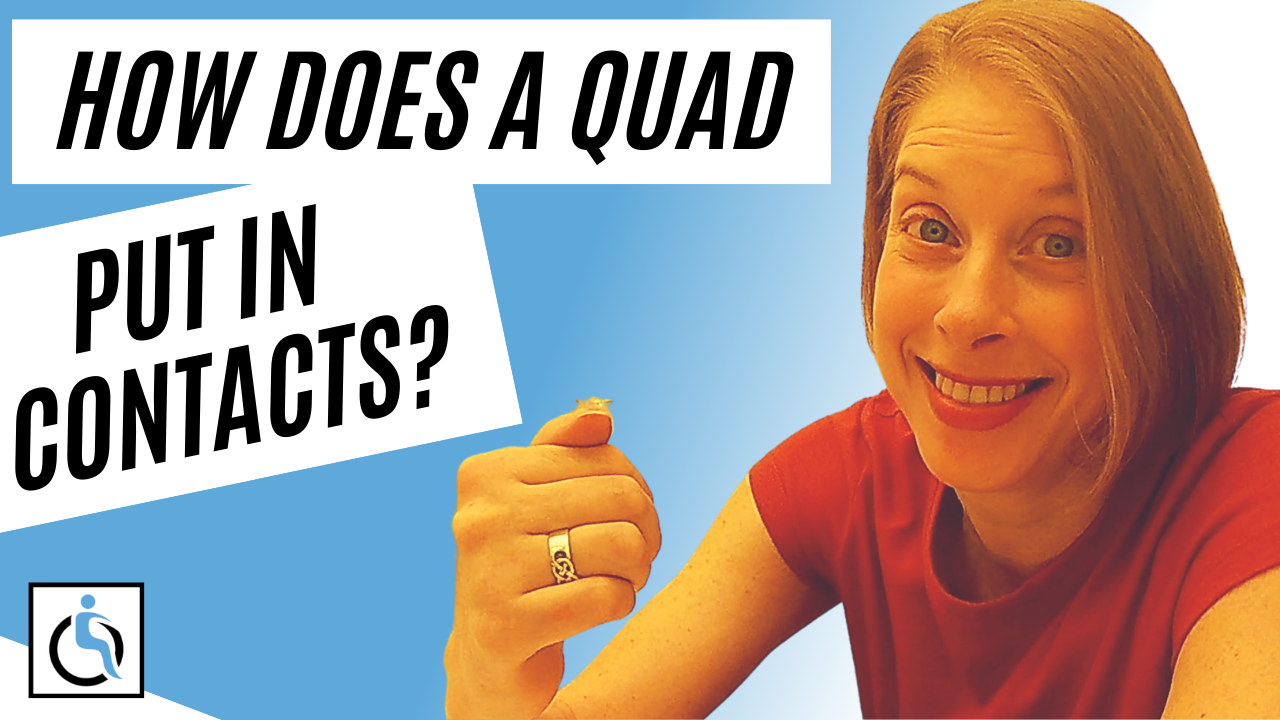I have learned to be an effective self-advocate. An educator. It is a role that’s thrust upon all of us – whether we like it or not – when you or someone you know has a disability.
Go back to the very beginning. Before your injury or the onset of a disability. What did you know about spinal cord injuries? Did you know how to interact with someone with a disability? How to assist? If you should help?
We all have different needs. Different abilities. We can’t expect strangers – or even those who are close to us – to know or always remember these things. It’s in these situations that we must be effective educators for life to roll as smoothly as possible.
Educate how to help, when needed
Each of us differs in the assistance we need on a daily basis. You might be a quad who needs help getting a credit card out of your wallet. Maybe you’re über-independent – but your wheelchair just rolled down the big hill while you’re still seated in your car.
Each situation requires some assistance. Don’t expect someone to read your mind and know exactly how to help. Or worse, curse them for not helping when you obviously need help. (Can you tell I might have some experience at expecting others to be able to read my mind?)
How to educate and advocate
Politely ask for assistance when needed and explain in detail how they can help. Every person with a disability is different. We can look the same, but have very different ways of doing things. Here are a few examples:
- Giving step by step directions to a new care attendant. Don’t assume they should know your routine.
- Grocery shopping. Where and how would you like your grocery bags? Each time I go shopping, it’s different. Sometime I request help, other times I don’t.
- That awkward receipt or credit card handoff to a quad.
Educating when help is not needed
Just as important as explaining how to help is educating well-intended strangers (or family members!) when “I’ve got this.” There’s nothing worse than someone coming up from behind and pushing me unexpectedly in my manual chair. Or the person who wants to help by opening two doors, but stands smack-dab in the middle of the two doors – in perfect position to get their toes rolled over.
I have to admit, depending on the day, keeping the tone of my voice in check can be difficult. If I’m grumpy, I may simply say, “No, thank you. I’ve got this.” If I’m in a better mood and see the person is truly listening, I will explain why pushing my chair without my knowledge is dangerous due to my lack of balance. Or “Could you stand on the side and open just this one door, please?”
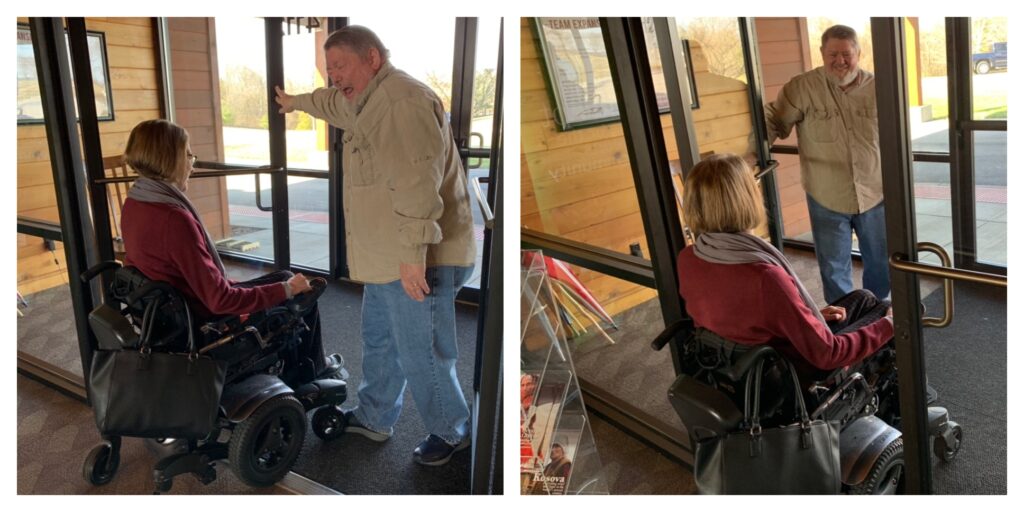
Remember, people are helping because they want to help. Their intentions are good. But you can still clearly state what help is or is not needed.
Educating medical professionals
We often assume all medical personnel should know about autonomic dysreflexia, bowel and bladder care or skin issues. But let’s be honest – they don’t. And we can’t expect them to. After all, if I had a degree in mechanical engineering, you wouldn’t expect me to be equally knowledgeable in environmental engineering, would you?
During a hospital stay, be prepared to educate nurses and other staff about how to assist you. If you cannot perform your bowel program independently, give step by step instructions how to insert a suppository, perform digital stimulation, and how to clean up to prevent urinary tract infections. The same is true for bladder care, checking for skin breakdown and being turned on a regular schedule.
If you are prone to autonomic dysreflexia (AD), talk with the doctor and charge nurse ahead of time.
Remember, you are teaching a nurse or doctor something s/he might never have experienced. This knowledge might help a person that follows in your footsteps (err… tread tracks).
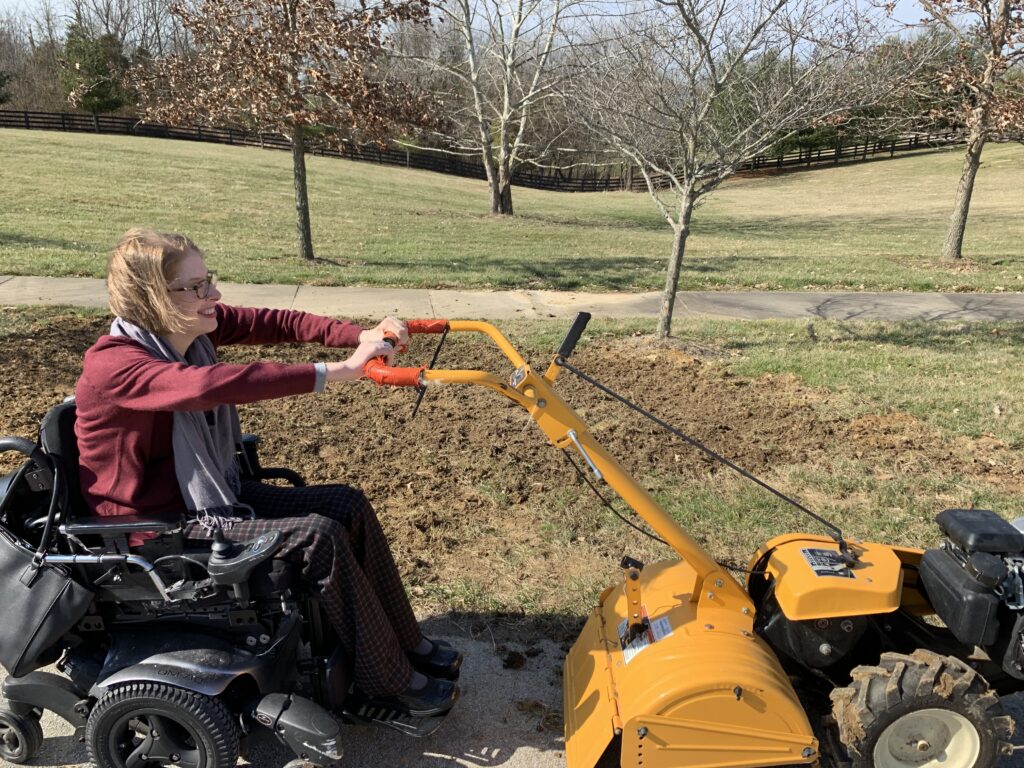
Advocate for accessibility
No ramp and no alternate route of entry. A movie theater with headache-inducing seating for wheelchair users. The brand new shopping store with aisles too narrow for my chair. No accessible bathroom. A restaurant with no table suitable for wheelchairs.
It gets old. It’s frustrating. And the examples are endless.
My response is dependent on the situation. Sometimes I write a letter. Other times I request to speak to a manger. If a business is unwilling or unable to accommodate wheelchair users, then I take my money elsewhere.
Advocating and educating about accessible parking
In 2020, a few of us educated our city council and police department about the importance of access aisles. The city ordinance was amended to allow towing vehicles improperly parked in access aisles.
Personally, I will not approach someone illegally or improperly parked. However, I carry these sticky notes with me. By placing this message on the driver’s side window, I hope to educate the driver about the importance of the access aisle or hash-tagged area intended for wheelchair users or others with disabilities.
I also have the app Parking Mobility on my phone to report violators. Some cities will ticket using this app. My city doesn’t yet, but I continue using the app (especially when I’m blocked out of my van). I secretly hope I scare the crud out of someone when they see me taking pictures of their improperly and illegally parked vehicle.
Educating the innocent child and embarrassed mom
“Mommy, why is that lady in a stroller?”
As the embarrassed mother “shushes” her child, I make eye contact with both mom and child and smile. I explain that I use a wheelchair. I can’t use my legs, but I can still do many things with a wheelchair.
Three lessons are communicated: 1) The mom is taught it’s not shameful for a child to ask an honest question. 2) The child is educated that having a disability is not shameful or shush-worthy. 3) Very simply and quickly I have taught the lesson that people can live life with a wheelchair.
Educating the cashier or waitress who addresses your friend or family member
Hello?! I’m the one holding the cash!
Sometimes I feel like I have the superpower of invisibility.
I speak up. And I give my friend an evil eye if they even dare try to speak on my behalf. I do what I’m there to do.
Education complete.
The list is endless
Unfortunately, we know this is just the tip of the iceberg. We have to educate others on an endless list of topics that we encounter daily:
- Airport personnel in how we need (or do not need) assistance getting onto an airplane
- Employers or potential employers on accommodations
- Mammogram technicians or gynecologists on how to assist us
- Car mechanics on what hand controls they should never, EVER touch
Whether or not we have the letters Ph.D. after our name, each of us has a doctorate in Living with Spinal Cord Injury. This honorary degree requires us to continue advocating for ourselves by educating others through the experiences we encounter on a daily basis.
This article was originally published on BardCare.com.

